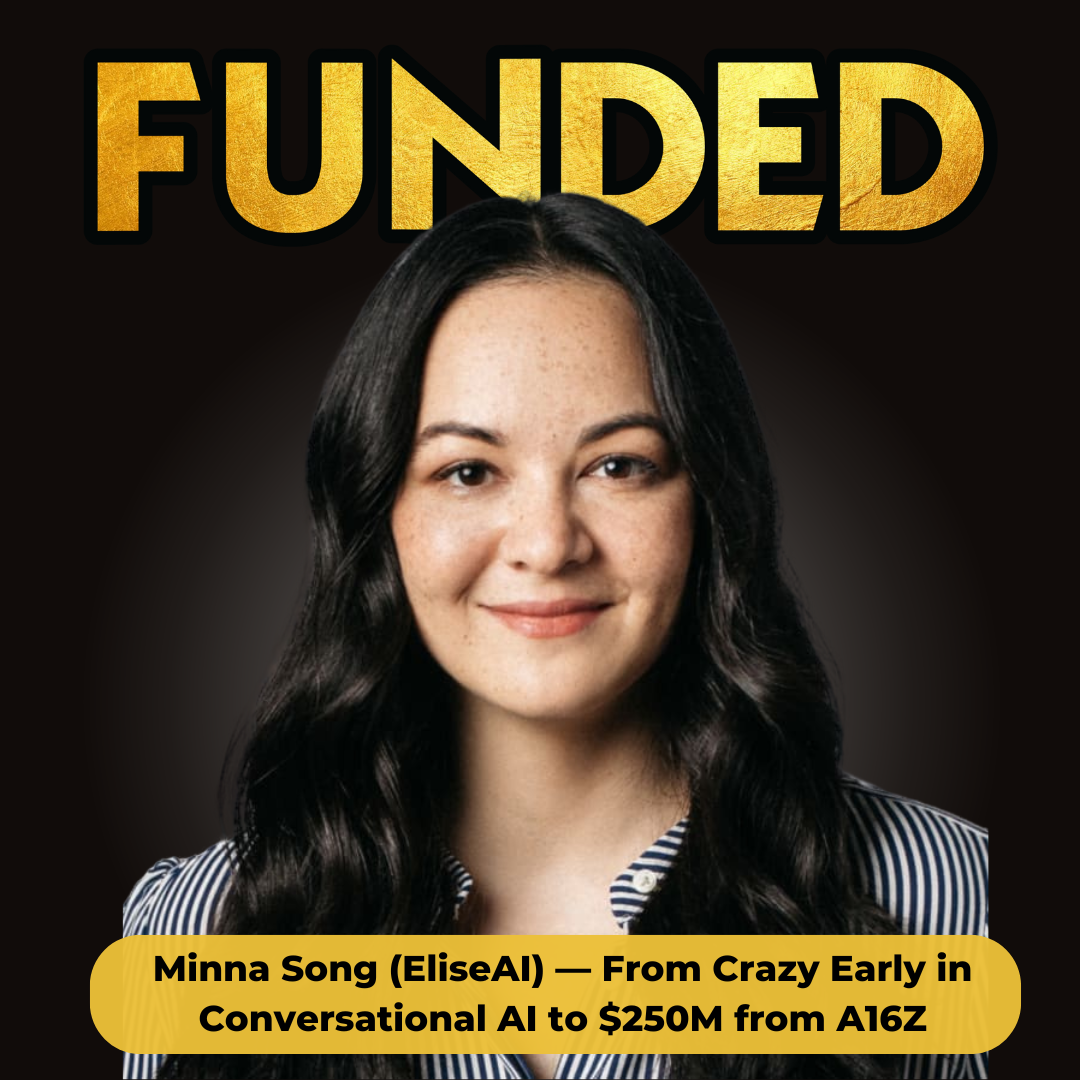
TBC: Grease the Friction in Fundraising
In this episode of The Back Channel, Jason Yeh unpacks the hidden friction points that often derail fundraising. He explores why investors hesitate and what founders can do to navigate those moments. Tune in to learn how to turn obstacles into momentum.

TBC: Time-Saving Fundraising Strategies
In this episode of The Back Channel, Jason Yeh reveals key time-saving strategies to ensure your fundraising efforts stay on track. He emphasizes the importance of preparing ahead, alongside 2 other keys to stay in control. By adopting these approaches, you'll streamline your fundraising journey and maintain momentum for a successful raise.

Minna Song (EliseAI) — From Crazy Early in Conversational AI to $250M from A16Z | Ep 57
Raising money for AI might seem easy today, but back in 2017, it was anything but. In this episode of Funded, Jason Yeh sits down with Minna Song, co-founder and CEO of EliseAI, who shares her journey from bootstrapping a conversational AI startup before ChatGPT was even on the horizon to closing a $250M Series E led by Andreessen Horowitz. Minna opens up about the doubts investors had early on, the lessons she learned about storytelling and timing, and how staying disciplined helped her build one of the fastest-growing companies in real estate and healthcare AI.

TBC: Ask for Help: Fundraising Storytelling
In this episode of The Back Channel, Jason Yeh dives into the power of asking for help, especially when it comes to fundraising and storytelling. Drawing from an insightful conversation with Minna Song, co-founder of Elise AI, Jason explores how technical founders can benefit from expert storytelling assistance to elevate their fundraising efforts. He encourages founders to embrace the art of asking for help, especially when it comes to areas outside their expertise.

TBC: Building a Helpful Network Ethic
In this episode of The Back Channel, Jason Yeh explores the power of building a network rooted in small, genuine acts of helpfulness. Jason breaks down why simply being a helpful person is both fulfilling in the short term and a powerful foundation for future fundraising success.

TBC: How to Close an Angel Round
In this episode of The Back Channel, Jason Yeh breaks down what it really takes to close an angel round. From the mindset shift founders need to the tactics that can unlock momentum, he shares key lessons to help you move from scattered conversations to signed checks.

TBC: The Right Type of Investor
Not all investors are created equal. In this episode of The Back Channel, Jason Yeh explains why some businesses struggle to raise capital—not because they're bad, but because they're pitching to the wrong type of investor. Learn how to identify the asset class your startup fits into, and how to align with the investors who actually “get it.”

TBC: The Human Side of Investor Relationships
What is the true meaning of “relationship” in fundraising and business? Jason breaks it down in this episode and challenges the common misconception that relationships are just shortcuts or favors. He instead highlights how genuine trust and shared experiences build the foundation for meaningful connections. Jason also introduces his new project, Capital Interests, which helps founders connect with investors through shared passions beyond just business.

TBC: The First Lesson of AI in Fundraising
In this episode of The Back Channel, Jason Yeh dives into the role of AI in our daily workflows, offering encouragement, a cautionary take, and his first practical lesson on using AI in fundraising—especially when building pitch decks. Learn how to think critically about AI's strengths and weaknesses and how to start integrating it into your creative process today.

TBC: Fundraising in the Age of AI
In this episode of The Backchannel, Jason breaks down what it really means to fundraise in an AI-dominated world. If you’re not building core AI infrastructure, how should you position your startup? He explains why every founder needs an AI story—one rooted in how the tech impacts your product, operations, and long-term defensibility.

TBC: Focus on What Matters
In this episode of The Backchannel, Jason reflects on a recent conversation with a robotics founder that reminded him how powerful it is to focus on what actually matters. From skipping the company name to delaying fundraising, the founder made unconventional decisions that signal discipline, clarity, and real momentum. Jason breaks down why avoiding “playing startup” and doing the unsexy work is often what sets great founders apart.
Latest Episodes -
Check out our latest chats with awesome founders.
Featured Episodes -

.png)
.png)



